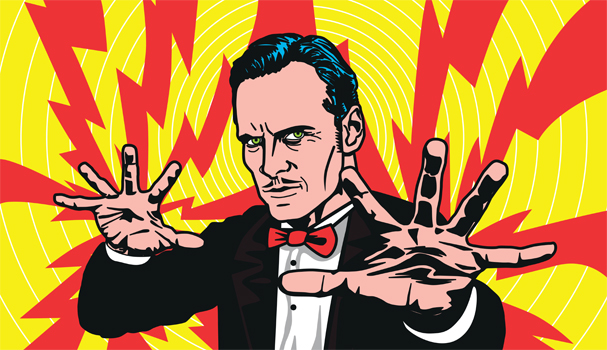Nurturing client relationships in a more social setting has certainly changed a lot in the last few decades. “Twenty years ago, it was all about relationships, it was all about going out in the social environment,” says Liz Hobbs, founder of production and event management company Liz Hobbs Group. “There were lots of business lunches, there was lots of getting to know people going on all the time.” However, she feels that over the last ten years or so things have changed significantly and few factors influenced this quite as much as technology, with the tendency increasing by the end of the 1990s and in the early 2000s for more and more of our professional lives to be conducted via a monitor and mouse. “People stopped even picking up the phone, because they were sitting behind computers,” she says.
But this is far from the only factor. Sales performance improvement expert Huthwaite International has spent a good deal of its 40 years in the industry building success models for sales scenarios, and an area it often used to get consulted on was that of corporate entertainment. “About 15 years ago, when the economy was very buoyant, people were doing a lot of corporate entertainment,” comments David Freedman, the firm’s associate director. However, often what happened is while the enterprises involved may have had a good idea of their overall aim – that of trying to establish new commercial relationships – often less thought would be given to how they might achieve this aim. “They never gave any thought to what they were going to say to them when they got there,” he says. “They just thought: ‘Our chairman will talk to their chairman, we’ll all get drunk together and that’ll be fine’.”
Gradually, however, attitudes began to shift. In part, the rising trend toward using metrics and the need to track return on investment meant teams and enterprises became more conscious of exactly what they were investing in entertaining clients. “It was very expensive in terms of the actual cost and in terms of the opportunity costs taking people away from the business,” Freedman says. But it wasn’t just those throwing lavish events that began to feel the increased pressure to establish exactly what it was giving them; the guests as well were increasingly finding themselves dealing with KPIs of their own, and this meant taking time out of the office definitely needed a good reason behind it. “If they were swanning off to Ascot or the Test Match, even if it wasn’t costing them money, they’d probably need to justify going to it,” he says.
Hobbs also feels it’s hard to justify the time and expense to entertain or meet with clients. “It’s difficult to both justify and quantify – I’m the first person who will say we can’t afford a lot of money spent going out on boozy lunches,” she says. However, she does feel in the modern age we have gone too far the other way; often when someone has a business to run it can be difficult to realise the value that investing time in client relationships can have. “It’s about putting something back in their emotional bank,” she continues. “Developing relationships with clients is absolutely paramount to building a business.”
Taking this into account, how can a company get the most bang for its entertainment buck and ensure it’s not just pouring resources into something that isn’t offering a return? Freedman recommends ascertaining ahead of time what you are trying to achieve with your clients and plan around this.
First of all, it’s key to identify the relationship stage you are at with a client and how you need to invest in it. “We coined the phrases ‘social conversation’ and ‘purposeful conversation’,” he says. There are plenty of times, perhaps when you’re first entering a relationship, where a social conversation is all that’s needed – at other times, when deals are being struck, you will be siding much more with purposeful conversations. This then has huge ramifications for setting; the opera may be appropriate for a meet-and-greet but it’s not going to be a good place to close in on a deal. Lastly, it’s important to establish the people you need to make contact with and who will engage in the purposeful conversations. Freedman explains, “That’s all worked out in advance so you know how you’re going to use that time rather than just letting it drift around aimlessly.”
When entertaining clients in this manner, however, it is worth taking into account the recent introduction of the Bribery Act 2010. “I think there has tended to be a little fear, uncertainty and doubt about the Bribery Act,” Freedman comments. However, it’s unlikely an enterprise would come undone as the result of these regulations as long as they do two things. Firstly, they must declare any gifts or purchases made that amount to more than £50. “Secondly, never assume or pressure anybody into thinking that because they’ve enjoyed your hospitality that they owe you anything whatsoever,” he says. “It’s an opportunity to have a purposeful conversation in a relaxed setting – it is not part of a deal that says because you’ve bought them dinner they must agree.”
However, this is no reason not to entertain clients. Not only can getting out and meeting people in these settings help build new professional relationships, but nurturing them in this manner is very important, even if it just involves meeting over a coffee in the office. “It builds better quality and longer-lasting relationships,” says Hobbs. It also gives your clients an important sense of who the person they’re working with is and allows you to really understand them in turn. “That way you get to know how you can better benefit their business and better benefit your own.” ![]()
Share via:


















































